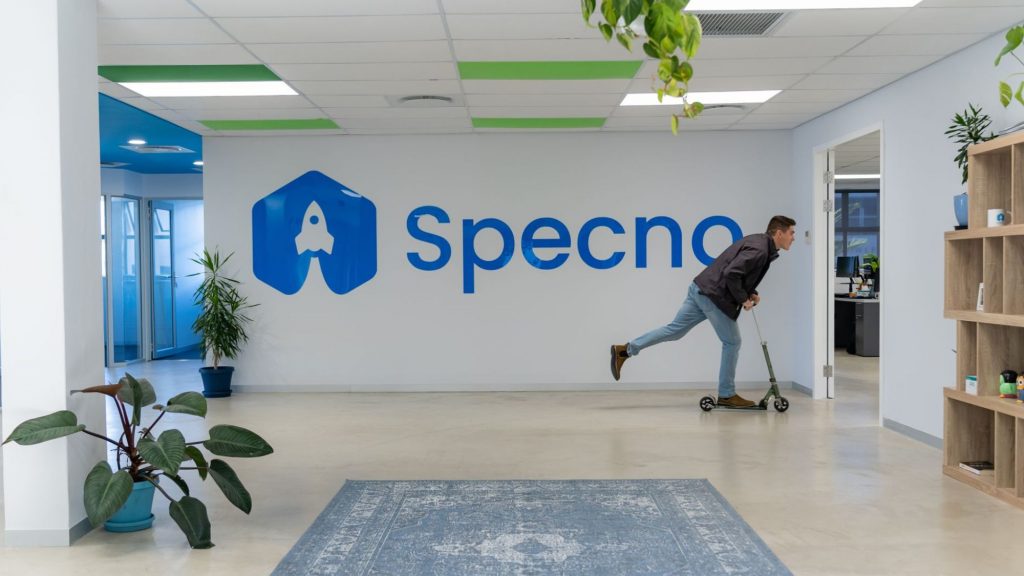South Africa’s esports scene is set for a major showdown as Hyprop and MTN introduce SHIFT COD, a Call of Duty tournament forming part…
Why is no one talking about venture building in Africa?

In his thought-provoking article, Daniel Novitzkas, co-founder at Specno, explores the underappreciated potential of venture building in Africa and its role in nurturing the continent’s growing start-up ecosystem. He highlights the ways venture builders can supplement the regulatory advancements of start-up acts, ultimately providing more hands-on and holistic support to innovative businesses and driving socio-economic growth.
One of the hottest topics in African innovation right now is the push for start-up acts. Championed by Senegal in the years leading up to 2018, at least 17 other African countries have since begun advocating for innovation legislation of their own.
This comes as more countries across the continent recognise the role that new ideas, products, methodologies, and technologies can play in fostering business growth, job creation, and equality amid the continent’s youthful, expanding, and largely unequal population (cue the old “leapfrogging” analogy).
Start-up acts are, on paper, an essential enabler of innovation. By introducing policies that make it easier to utilise intellectual property, raise funding, and hire talent, they help create a more conducive environment for start-ups and individuals to conduct business and grow.
However, their paper nature is also their biggest drawback: While regulatory reforms can improve operational environments for those working in the innovation space, they don’t offer much in the way of direct support to fast-growing and scalable businesses, or the people behind them.
After all, planting a seed in fertile soil doesn’t guarantee it will automatically grow into the tallest tree. It takes care, resources, and a lot of guidance to keep it on a straight path upwards.
For this reason, African innovators have started looking for a new source of support: venture builders.
Also referred to as “start-up studios”, venture builders are a relatively new concept. When looking for help, founders and innovators have typically turned to incubators or accelerators. However, these tend to be more detached from the business, operating cohort-based programmes that focus primarily on mentorship and training.
Venture builders, on the other hand, take a longer-term and more holistic approach, augmenting access to expertise with hands-on support for product development, fundraising, and all-round business development.
Why do so many African start-ups fail?
But while start-up acts have dominated news headlines, the term ‘venture builder’ has barely made a blip on the radar. With more than half of African start-ups failing, this is a problem.
According to the most recent survey data, 54% of African start-ups do not survive past their initial years.
Considering that by the end of 2022, the continent was home to at least 7 637 start-ups, a modest calculation would indicate that 4 124 start-ups are no longer in existence. While this should be seen as more of a guiding figure, we can still confidently say that there are thousands of start-ups no longer creating jobs, training talent, building industries, or driving socio-economic growth in Africa.
Of the start-ups that fail, Startup Genome reports that 90% can be attributed to premature scaling; essentially, entrepreneurs skip important steps in their business plan and fail to establish solid foundations on which to grow.
From experience, this can happen in several ways: By burning funding and cash flow on unnecessary expenses; hiring the wrong people; not training staff effectively; not spending time conducting proper market research; launching a product that isn’t suited to the market; or a dreadful combination thereof.
Venture builders help founders, especially those without prior experience, avoid these common pitfalls. With dedicated teams for product, design, and development, they are able to pinpoint business strengths, weaknesses, threats, and opportunities, and accelerate the time it takes to build, test, finance, and go to market.
In doing so, they de-risk unproven businesses by providing founders with everything they need to establish firm foundations from which to grow.

But what’s in it for them?
For starters, some venture builders operate on a shared-equity model (usually up to 30%), so it’s in their best interest to see your business succeed. Beyond this, there’s concern about their reputation in the start-up ecosystem (no one wants a bad reputation in an industry driven by referrals). Then you’ve also got to consider research, which has found that up to 50% of founders go on to start additional businesses, implying that every well-served entrepreneur is likely to become a repeat customer.
For those still sceptical of giving up a portion of their ownership, Specno prefers cash-first partnerships. By not taking equity, founders feel more at ease (no more “founder’s dilemma”), and we use the money to invest in the top-performing start-ups, adding potential for investment to our long-term approach.
Recognising these benefits and not wanting to be outdone by potential industry disruptors, corporate organisations have also started approaching venture builders to assist with their in-house innovation needs. Through these studios, corporations are able to side-step internal challenges and supplement their research into “How to build a successful start-up” with a partner that’s actually been there and done it (multiple times) before.
But despite the value proposition for start-ups, corporates, innovation, and ultimately socio-economic growth, Africa remains home to very few venture builders.
But as one of those few operating in Africa, we believe that this is on course for rapid change. In the five years since our inception, we’ve helped more than 150 start-ups build better businesses, with the likes of Quicket, Momint, FinMeUp, and others going on to secure funding rounds from top-tier investors.
As a partner to the ecosystem with a mission to support 1 million entrepreneurs build tech-enabled businesses by 2030, we’re excited by this growth and expect it to continue, as innovators become more acquainted with the studio approach to scaling.
When we founded Specno, the idea of forming a start-up – let alone investing in one – was still a relatively uncommon thing to do. Most people hadn’t yet acknowledged the value they could bring, and investors saw them as downright risky enterprises, which, to be frank, they still are.
By being innovative, start-ups offer a break from the status quo; a change from the normal in favour of the unknown. As a continent where normality is unemployment, inequality, and a lack of economic growth (never mind Africa’s soon-to-be population of 2.4 billion) – a start-up’s ability to create value by breaking with tradition should be properly supported. While start-up acts can do this in the long run, venture builders offer us a way to do this for the long run, today.

